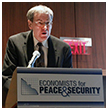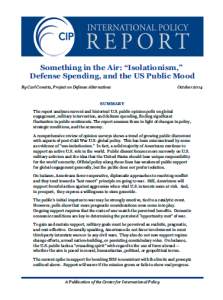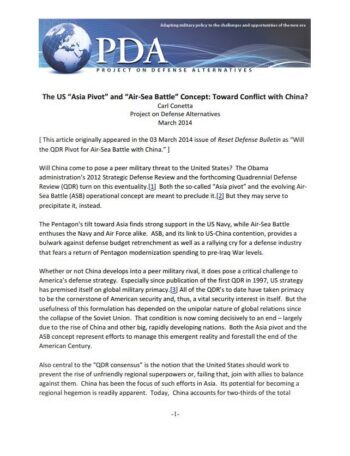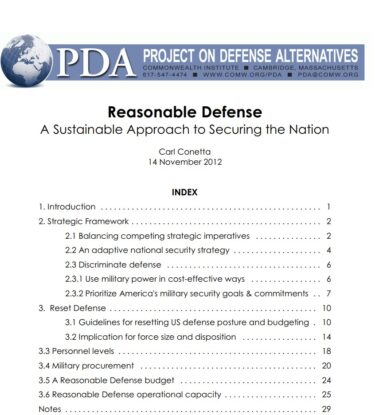➪ read the full post HTML
by Charles Knight, Lobe Log, 19 September 2015.
A review of the well-informed and insightful study by M. Chris Mason, The Strategic Lessons Unlearned from Vietnam, Iraq, and Afghanistan: Why the Afghan National Security Forces will not hold, and the implications for the U.S. Army in Afghanistan, Army War College Strategic Studies Institute, June 2015.
The most serious deficit of the Afghan National Security Forces…is its lack of motivation in comparison to the Taliban. One of the primary lessons unlearned from Vietnam, Iraq, and Afghanistan is that soldiers in the armies we create, train, and equip are simply not willing to fight and die for weak, corrupt, illegitimate governments.
~ M. Chris Mason





 Argues for a new balance among the various instruments of national power reflecting today’s strategic conditions. Taking a realistic view of security needs, the report advocates a military 20% smaller than today’s. It advances a “discriminate defense” strategy that would focus the military on cost-effective missions and save $550 billion more than official plans over the next decade.
Argues for a new balance among the various instruments of national power reflecting today’s strategic conditions. Taking a realistic view of security needs, the report advocates a military 20% smaller than today’s. It advances a “discriminate defense” strategy that would focus the military on cost-effective missions and save $550 billion more than official plans over the next decade.